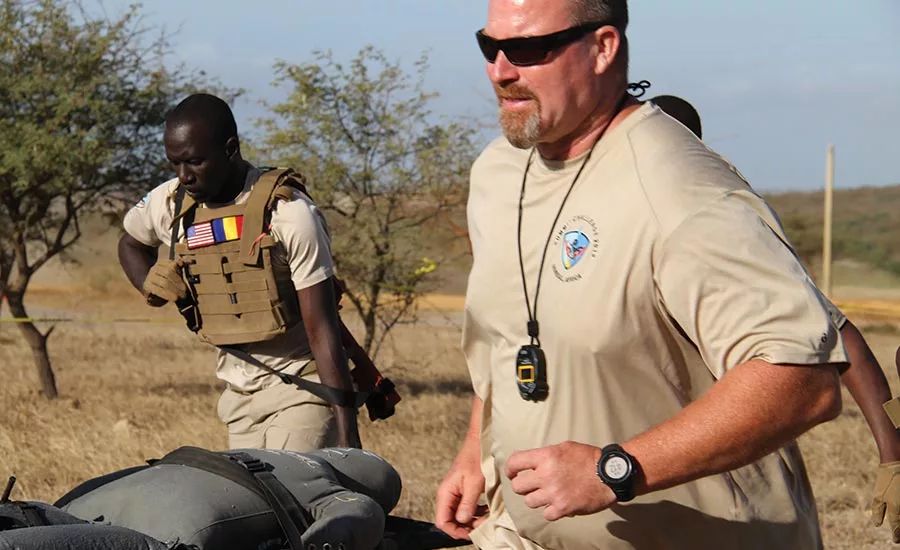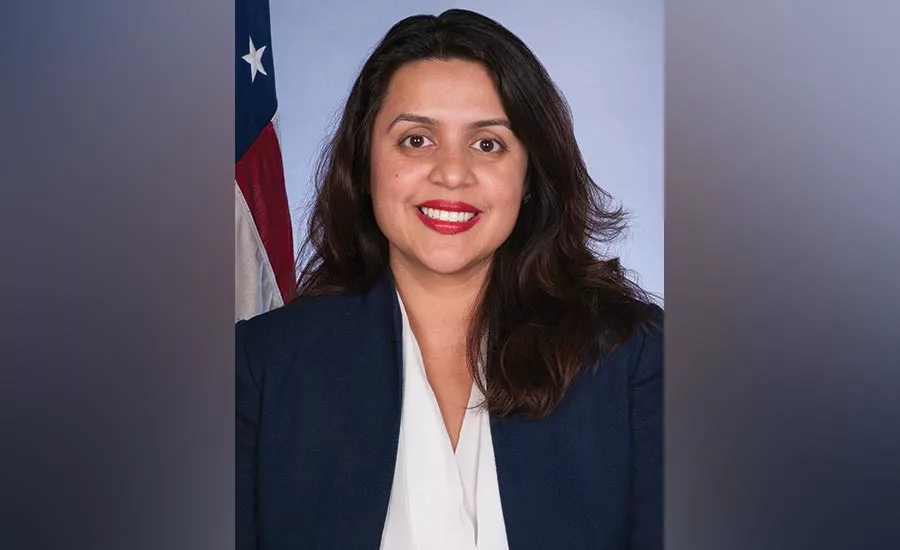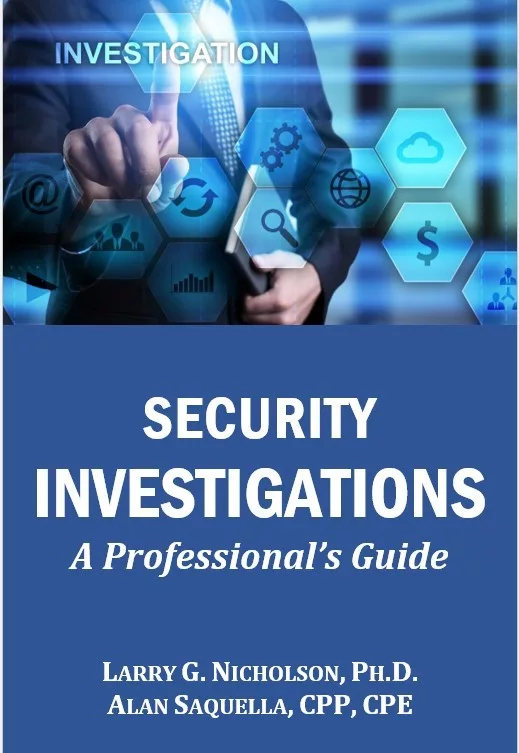A Public Private Partnership: the DSS and Enterprise Security
How does the the U.S. Diplomatic Security Service interface with public safety responders, and what can enterprise security learn from their successes?

As part of their effort to train foreign counterparts, the Special Program for Embassy Augmentation Response (SPEAR) teams, quick response forces trained and funded by DSS Office of Anti-Terrorism Assistance, are trained in tactical medicine, locating and evacuating personnel during an emergency and explosive device recognition.
Photo courtesy of the Diplomatic Security Service

Assiya Ashraf-Miller.
Photo courtesy of the Diplomatic Security Service

The Foreign Affairs Security Training Center (FASTC) in Blackstone, Va. Located on 1,350 acres of the 55,000-acree training complex at Ft. Pickett, a Virginia Army National Guard installation, FASTC is a comprehensive complex that provides fully integrated security training to meet unique training needs and the threats the foreign affairs community faces overseas.
Photo courtesy of the Diplomatic Security Service
Meet the United States Diplomatic Security Service (DSS) ñ a federal agency that can serve as an exemplar model on how to interface with public safety responders worldwide. DSS is the federal law enforcement and security arm of the U.S. Department of State, and the most widely deployed law enforcement organization worldwide, protecting 275 U.S. diplomatic missions, personnel and classified information in more than 170 countries and 29 U.S. cities.
The DSS’s most visible role is in providing security to the U.S. Secretary of State, the U.S. Ambassador to the United Nations and other senior diplomats, such as foreign dignitaries. The agency’s mandate includes criminal investigations, counterterrorism, security training, counterintelligence, as well as physical, technical and cybersecurity.
DSS’s more than 2,500 special agents, security engineering officers, security technical specialists and diplomatic couriers provide a secure environment for U.S. diplomacy, manage security programs for international events and often pursue safety objectives in cooperation with U.S. and foreign law enforcement agencies and public safety responders. Each fall at the annual UN General Assembly, for example, DSS special agents protect dozens of foreign ministers and other diplomats in New York, in an extensive operation that involves hundreds of special agents, aided by hundreds more federal and local law enforcement members.
Although the organization has been around for more than 100 years, its scope of work and presence throughout the world drastically changed in the early 1980s. DSS has trained more than 100,000 civilian law-enforcement personnel from 154 countries and has built solid working relationships with foreign and international law enforcement agencies that enable effective criminal investigation and security protection partnerships worldwide. Domestically, DSS special agents also serve alongside other U.S. government agencies that monitor terrorist and other threat activities to prevent violent acts against Americans and American interests.
How does DSS interface with public safety responders and what can enterprise security take away from DSS’s security operations?
Ensuring U.S. Diplomacy
Assiya Ashraf-Miller, a career member of the Senior Foreign Service and Supervisory Special Agent, is the Deputy Assistant Secretary for International Programs at DSS. Ashraf-Miller has oversight of security and law enforcement policy and programs, as well as responsibility for the direction of resources, personnel and budget oversight of more than $two billion, for more than 250 U.S. diplomatic posts in order to facilitate the safe and successful conduct of U.S. diplomacy overseas.
To ensure that DSS’s security platform at U.S. diplomatic posts are strong and robust, Ashraf-Miller also works laterally with state department bureaus, interagency counterparts and law enforcement agencies that have a presence overseas, just so that they are coordinated and in sync when it comes to security and law enforcement, she says.
Whether it’s for leading security programs, conducting criminal investigations, or dignitary protection, overseeing emergency preparedness or emergency response, DSS works with public safety responders every day. We conduct liaisons with all the embassies and consulates that exist in the U.S., says Ashraf-Miller. This includes coordinating with local, state and federal law enforcement agencies, so foreign missions know who to contact and to ensure we can be that bridge that connects entities.
All 29 of DSS offices around the U.S. have protective liaison agents who are in charge of communicating or cooperating with local law enforcement to provide security assistance, guidance and protection to foreign officials.
Overseas, DSS has special agents known as regional security officers, who serve as principal law enforcement and advisors to the U.S. ambassador at an embassy of a specific country. Regional security officers are also stationed at consulates and report to the principal officer. Essentially, that DSS special agent is the lead U.S. law enforcement officer and lead liaison to public safety responders and any security officials in a foreign country, Ashraf-Miller says.
Foreign public safety responders and security officials work together with regional security officers on a wide range of matters, from mission security to ensuring the protection of the U.S. Secretary of State or even the U.S. President when he or she is traveling to that foreign country, she adds.
Most regional security officers conduct joint trainings with public safety responders, she notes. We are all security professionals at the end of the day, so it’s important to train together, she says. We work together to make sure that they understand what our expectations are and to understand what their capabilities are. This results in a very strong and coordinated partnership for both sides, thus helps ensure the protection of U.S. diplomacy.
Interfacing Hiccups
The Vienna Convention on Diplomatic Relations of 1961 is an international agreement that defines a framework for diplomatic relations between independent countries. Everything is governed by the Vienna Convention, Ashraf-Miller notes. Since starting my career with DSS more than 20 years ago, I have noticed that host countries honor this treaty to the best of their ability and capability.
Understandably, there are challenges that may arise with countries that may have limited resources, such as poor communications and road infrastructure, or slow response times. Many public safety responders want to protect and serve, but they may or may not have the requisite skills or training that would meet the equivalent to the requirements of the U.S., she says.
Domestically, there aren’t as many resource-limited challenges, Ashraf-Miller says. Because we know our counterparts, it helps facilitate security operations. However, we always try to remind them about the Vienna Convention treaty, what privileges and immunity mean if they pull over a diplomat, what the requirements are in terms of communication and if they can arrest a diplomat or not.
Successfully Interfacing: Three Takeaways
There are three key aspects that have made DSS successful in interfacing with public safety responders, Ashraf-Miller contends. We will explore these aspects in three takeaways.
Takeaway #1: Help Goes a Long Way
With countries that have the most need, we try to leverage programs to build their capacities, Ashraf-Miller says. Regional security officers train foreign public safety responders to have the resources, training and skills to better equipped to respond to any emergency that may occur at any of our posts, she says.
DSS also has an Anti-Terrorism Assistance (ATA) program that is dedicated to building capacity for host nation security forces to combat terrorism. We have other programs that train all public safety responders that are dedicated to our embassies and posts to build their capacity, she notes.
Personally, Ashraf-Miller, served as a Regional Security Officer in Kabul, Afghanistan from 2017 to 2018, one of the most kinetic times in the country. During increased terrorist threats and bombings, my team trained a specific unit, the Crisis Response Unit 222, the primary Afghan National Defense and Security Forces (ANDSF) capability, to provide rapid response to high profile attacks and neutralize threats within Kabul and the diplomatic community.
She recalls one particular incident: the 2018 Inter-Continental Hotel Kabul attack on January 20, 2018. In a 12-hour battle, a group of four or five Taliban gunmen attacked the hotel and left at least 40 people dead and 14 injured.
The Crisis Response Unit really neutralized this threat successfully, she notes. If not for the methodical, professional response that we trained them on, the casualties would have been much worse, she says.
DSS may at times train foreign law enforcement partners and locally employed staff at its new state-of-the-art Foreign Affairs Security Center (FASTC) in Blackstone, Va. Located on 1,350 acres of the 55,000-acre training complex at Ft. Pickett, a Virginia Army National Guard installation, FASTC provides fully integrated security training to meet training needs and the threats the foreign affairs community faces overseas.
The training compound provides hard-skills security training to approximately 10,000 students annually, including DSS special agents, other Department personnel and the larger foreign affairs community and their family members. Some of the training courses offered include surveillance detection, emergency medical care, recognizing improvising explosive devices, firearms familiarization and defensive and counterterrorism measures.
DSS agents also facilitate training at FASTC to foreign security counterparts to help build their emergency preparedness. Whether it’s how to respond to an active shooter scenario, a protest, or any other training provided at FASTC, we provide and facilitate that training for foreign security officials, she adds.
Takeaway #2: Build Rapport
We all speak the same security lingo, Ashraf-Miller says. We all have the common goal to secure and protect, and investigate, whether it’s domestically or overseas.
That being said, DSS focuses on building rapport and relationships with all public safety responders. We have a rule: the first time we meet with a public safety responder should not be during an emergency. We develop that relationship as soon as possible. If you’re responsible for the safety and security of a facility or organization, that should be a priority for you. The public safety responders must know us, and we must know public safety responders and they should know our facilities in and out, as well, she adds.
When working overseas and building relationships, it is paramount to keep in mind cultural differences, as well. Cultural differences and language differences do sometimes come into play, and all security professionals should be able to navigate and work really well with other cultures and backgrounds, she says. Often, it works without difficulty because brothers and sisters in blue understand the same lingo.
Takeaway #3: Collaborate and Practice
It’s critical to remember that all security professionals have similar responsibilities, Ashraf-Miller notes. It’s never a one-way street; it should always be a collaborative effort, she continues. For DSS, it’s important to maintain a strong and collaborative relationship with public safety responders.
We incorporate public safety responders in everything we do, and we often find they might have a better idea on how to enable better security protection in an emergency plan, she adds. Not only that, but to include them in drills, trainings and exercises helps build trust between teams and all security officials.
We create an emergency response plan together, test everything, from the very minute to larger scenarios, she says. We also organize trainings, exercises and mock-drills with them. Practice can only improve the outcome of the security operation.
In addition, DSS does a lot of outreach and has a strong partnership through the Overseas Security Advisory Council (OSAC). DSS works closely with U.S. businesses that are present overseas to ensure their emergency response plans are in place and that they are secure, she says. It supports the U.S. private sector in developing efficient security information and communication networks that provide the businesses, academia, faith-based and non-governmental organizations with the tools needed to cope with security issues.
Final Thoughts
DSS has successfully interfaced with public safety responders via:
- Helping each other and building relationships establish trust. If you have an established relationship, public safety responders will feel more confident, and they will trust that if they respond to a situation at your facility or organization, together, you will be partners in that response, Ashraf-Miller notes.
- Ensuring continuous collaboration and practice. Train constantly, drill regularly, make sure to account for every aspect of every scenario, and make that scenario as realistic to your environment, she adds. If there is an incident, it’s also important to create a Lessons Learned list: bring the public safety responders to the table, and ask: ëCould we have done this better?’ ensures future security operations are more successful.
Looking for a reprint of this article?
From high-res PDFs to custom plaques, order your copy today!







